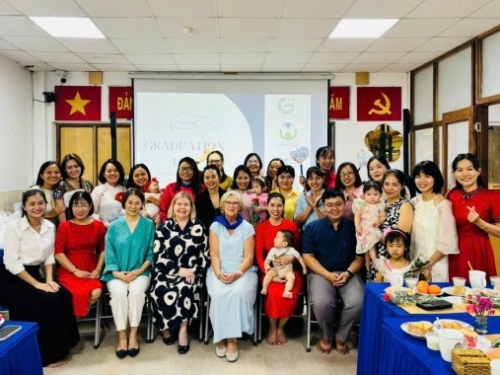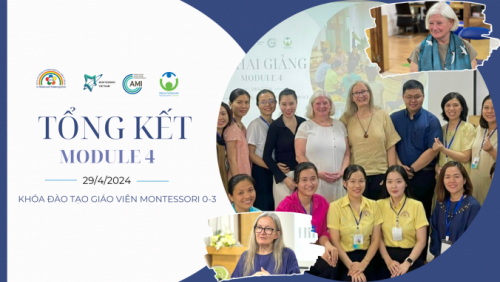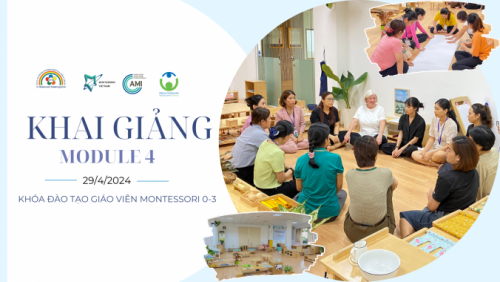Self-Care – A Journey to Discovering Personal Value
- Handwashing: A small basin of water, a bar of fragrant soap, and a clean towel become tools for children to learn self-care. Handwashing becomes more than a task—it’s a lesson in respecting their own bodies and maintaining personal hygiene.
- Using hygiene tools: Activities such as brushing teeth, washing their face, or combing their hair help children understand that caring for oneself is the first step toward independence.
- Dressing and undressing: Mastering zippers, buttons, or laces becomes a “challenge” for children to overcome, nurturing their confidence each time they successfully complete the task.
Caring for the Environment – Cultivating Responsibility
- Tidying up toys: With small storage boxes and gentle guidance, children learn to organize their belongings, developing a habit of tidiness.
- Sweeping and cleaning: Child-sized brooms and dustpans allow children to practice keeping their spaces clean, fostering a sense of responsibility for their surroundings.
- Watering plants: By carefully watering plants, children learn to care for other living things and develop a deep connection to nature.
Preparing Food – Learning to Share and Becoming Independent
- Making simple dishes: Activities such as washing vegetables, cutting fruit with child-safe knives, or mixing simple ingredients teach children valuable skills while letting them experience the joy of creating something themselves.
- Setting the table: Placing plates, spoons, and forks neatly on the table teaches children responsibility and encourages good habits.
Developing Motor Skills and Creativity
- Sorting and arranging objects: Playing with blocks or organizing objects by shape or color helps children refine their hand-eye coordination while encouraging logical thinking.
- Exploring textures: Bowls filled with sand, rice, or water stimulate sensory exploration and invite children into a colorful world of creativity.
- Simple art activities: A box of crayons and a sheet of paper are all children need to express themselves and explore their artistic potential.
Principles of Designing Activities
These activities are carefully designed to match the age and abilities of the children, while also creating a safe environment that encourages them to practice freely without fear of failure. By respecting each child’s pace and choices, adults not only support them but also inspire them to gradually refine their skills and develop confidence in their abilities.
The Core Value of Practical Life Activities
Through each activity, children not only acquire essential skills but also learn the value of patience, self-awareness, and respect for their surroundings. These are the seeds of comprehensive and sustainable development, preparing children to step confidently and responsibly into life.
Sincerely,
Tiny Flower Montessori
• TINY FLOWER MONTESSORI SCHOOL SYSTEM
• No. 05, Street 23, Nguyen Luong Bang Street, Tan Phu Ward, Phu My Hung Urban Area, District 7, Ho Chi Minh City.
• Hotline: 0963 010 136
• No. 69C Le Van Luong, Phuoc Kien, Ministry of Defense Housing Area, Nha Be District.
• Hotline: 0931 867 514
• Website: www.tfm.edu.vn
• #TinyFlowerMontessoriSchool
• #MontessoriSchool #MontessoriEducation





